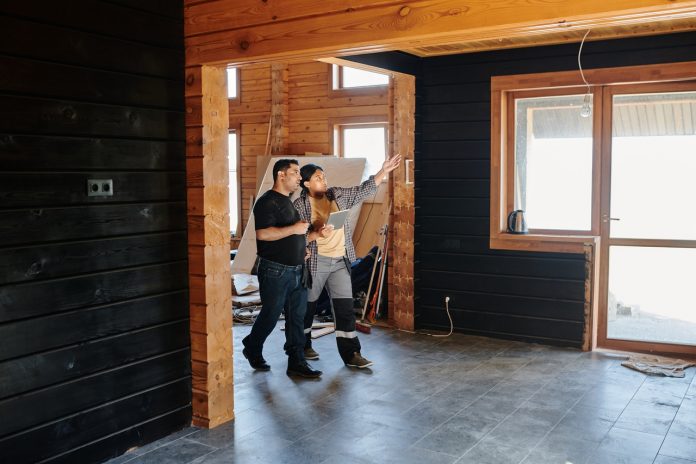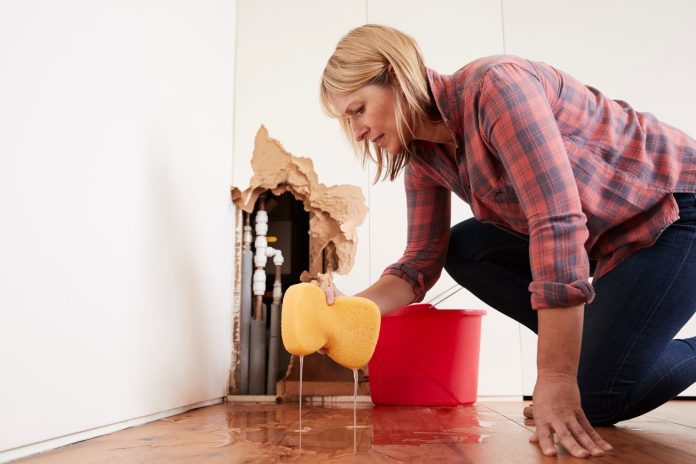5 Ways To Prevent Water Damage In Your Home
Water damage is a common issue in most residential properties. The most common sources of this problem include clogged drains, faulty pipes, or leaks. Doing nothing about it could lead to mold and mildew in your home, triggering allergic reactions or even respiratory illnesses. In addition, flooded areas can create an environment for mosquitoes to breed and spread diseases. Taking proper measures before it gets too late can help prevent the damage from spreading to other parts of your home. Here are five ways to prevent water damage in your home:
1. Check Faucets Regularly
One common cause of leaks is dripping faucets. Loose connections, worn washers, and defective parts can cause them. Some of the most helpful tips to fix a leaky faucet include checking it regularly and replacing worn or faulty parts. You can also take advantage of faucet filters that trap hair, soap scum, and other debris that could clog up your pipes over time.
Consider installing a new showerhead or faucet with an aerator if your home has an older plumbing system. This helps to reduce water pressure, so there’ll be less backflow into your pipes. It also keeps your shower head from clogged with mineral deposits and sediment that can affect water flow.
2. Improve Drainage Systems
Drainage systems are designed to remove excess water from the floors of your home. Overflowing drains can cause basement flooding and a host of other problems. To avoid basement flooding, install sump pumps or electrical submersible pumps. These pumps can remove any standing water on the floor, so mold has no chance of growing.
You can also install a drain tile system around the perimeter of your basement. Doing so will allow water to flow away from your home’s foundation instead of pooling on top of it. Also, it ensures that all excess water is removed before it can cause any damage.
3. Keep Moisture Out Of The Crawl Space
The crawl space is an area that can get wet during heavy rains. It’s often located directly under the home, where you’ll find your furnace, electrical panels, and other utilities. A moisture problem in the crawl space can attract mold or fungi, which can cause damage to your home’s foundation.
An excellent way to keep moisture out of the crawl space is to use a dehumidifier with a fan installed inside. The fan will force air through the ductwork and out of the crawl space, preventing moisture from settling in.
You can also use an extractor fan to blow air into areas with too much moisture. It can also help you dry out your basement quickly and easily without turning on your entire heating, ventilation, and air-conditioning (HVAC) system.
4. Install Gutter Guards
Water will flow down your gutters and onto the ground below when it rains. However, when your gutters are clogged, it can lead to blockages, pest infestations, or rust and corrosion. One way to avoid this problem is to install gutter guards. So, when choosing a new roof design or renovating your roof, choose the most effective gutter guard.
With gutter guards, you can protect your home by keeping unwanted debris out of your gutter system. You may need to use a particular type of adhesive or caulk designed for this purpose when installing gutter guards. Otherwise, the product won’t stick better to hold up against wind and rain over time.
It’s worth noting that the correct gutter width not only affects how well the guards fit but also how efficiently water flows off your roof. If the width is too narrow, there’s a risk of water spillover, which can lead to potential foundation damage. On the other hand, an overly wide gutter might not efficiently catch the water. Therefore, always make sure to measure and choose the right width for your home’s requirements.

5. Assess If Your Foundation Has Cracks
You may not realize it, but your foundation is integral to your home. It supports the ceilings and walls, keeping the structure firm and steady. If it becomes damaged or cracked, water can seep into your home and cause damage that could be irreversible.
You can prevent damage to your home by assessing if your foundation has cracks. If you see any evidence of cracks in your foundation, you can contact a professional to fix them. However, before the problem worsens and does further harm, it’s best to seek help from an expert.
Key Takeaway
As a homeowner, your main priority is to keep your home safe. And the most practical thing to do is to prevent water damage. Otherwise, your family might suffer from health issues due to mosquitoes or mold exposure.
One of the most common ways to avoid it is installing gutter guards to prevent dirt and debris. You can also check your faucets regularly to ensure they’re not leaking. Regular maintenance lets you know when something needs immediate attention and prevents further damage to the property.






